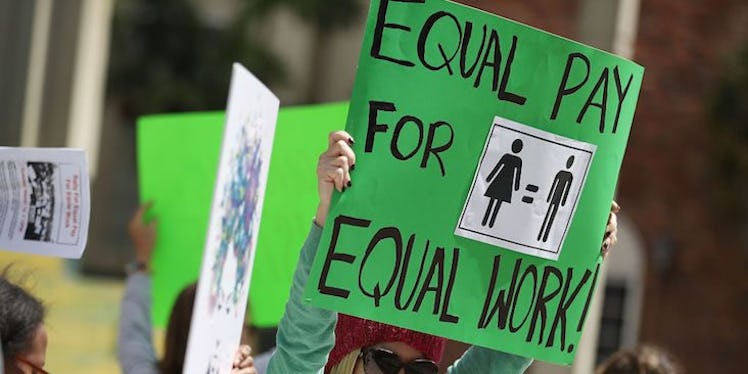
7 Tweets That Explain Black Women's Equal Pay Day
If you were on Twitter at all Monday afternoon, July 31, you probably noticed the hashtag #BlackWomensEqualPay trending, accompanied by lots of statistics and infographics.
Wondering what Black Women's Equal Pay Day is but too afraid to ask? Fear not. Here are 7 tweets that break it down.
Thanks to the gender pay gap, working women as a whole in the U.S. make just 80 percent of what men do, on average.
Equal Pay Days show how long into the following year women have to work to earn the same amount men earned on December 31 of the previous year.
The pay gap varies by race -- so the pay gap is not the same for all women.
Research from the Economic Policy Institute from March 2017 shows a 65 percent gap for black women, a difference equating about $7.63 less per hour of work. Other research by my former employer, the American Association of University Women, puts that figure lower, showing a 63 percent gap for black women.
Equal Pay Days are symbolic days that represents the pay gap in terms of a working year, and there's one to account for each level of pay gap for each racial group.
So on July 31, 2017 black women are just now catching up to men's earning from the end of 2016. That's another 7 months of work for the same pay. (Because of math.)
By the way, that's not even as bad as it gets -- Latinas, who earn only 54 percent, don't see their Equal Pay Day until November, almost a full year later!
Here's how long it's projected to take before the pay gap closes and black women finally earn the same as men.
Even in a single lifetime for a working woman, the pay gap has a profound effect.
Wondering what the 63 percent means in terms of working years? Yep, it's pretty abominable. See this graph below:
The pay gap affects women in so many ways -- not just in how it's reflected in the paycheck.
The earnings women lose out on as a result of the pay gap echo into every area of life, from health care costs to saving for college, retirement to vacation.
And the icing on the giant inequality cake...
Black women are disproportionately burdened by student debt, making the pay gap hurt that much more.
Research from the American Association of University Women also found that women of color bear the brunt of student debt, with 54 percent experiencing financial hardships in repayment versus only 24 percent of men. Gee, I wonder why!
Here's to the day when we no longer have to point out that it's Black Women's Equal Pay Day!